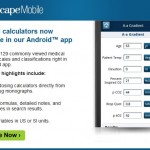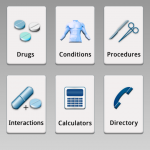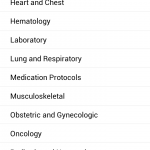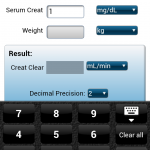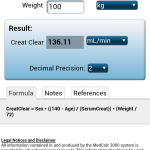I’m sure most of you have Googled for medical advice at one time or another. I know I’ve performed quick Google searches for healthcare information, including specific drug information.
It turns out that a lot of people search for symptoms online, and the information isn’t always helpful. Sometimes a little information can send people’s minds cascading into full panic mode, i.e. get a tension headache, search for symptoms and end up thinking you’re dying from a brain aneurysm.
Google understands the problem and has improved symptoms search.
Roughly 1 percent of searches on Google (think: millions!) are symptom-related. But health content on the web can be difficult to navigate, and tends to lead people from mild symptoms to scary and unlikely conditions, which can cause unnecessary anxiety and stress.
So starting in the coming days, when you ask Google about symptoms like “headache on one side,†we’ll show you a list of related conditions (“headache,†“migraine,†“tension headache,†“cluster headache,†“sinusitis,†and “common coldâ€). For individual symptoms like “headache,†we’ll also give you an overview description along with information on self-treatment options and what might warrant a doctor’s visit. By doing this, our goal is to help you to navigate and explore health conditions related to your symptoms, and quickly get to the point where you can do more in-depth research on the web or talk to a health professional.
As I mentioned above, I’ve used Google to look for pharmacy specific drug information. Most of my colleagues do the same thing on a regular basis. It’s amazing what can be found with a few key words and the click of mouse.
We live in a digital world. Information has never been more accessible nor more overwhelming. Clinicians have unfettered access to information that one couldn’t have imagined just ten years ago. Information has become cheap, plentiful, and readily available to anyone with internet access. Journals, reference books, provider forums, clinical trial hubs, drug monographs, study data, and so on can be accessed anytime, from anywhere. This thanks to the development of cellular networks and mobile devices. Everything is simply a click away.
I still work an occasional per diem shift at a local hospital, and take my word for it when I say that it’s never been easier to access information. When I compare this to how I gathering information when I became a pharmacist some twenty years ago, my head spins.
I’ve always wondered what it would be like if one were to give Google access to all the currently available literature and reference material in real time. The idea of such a vast amount of knowledge at one’s fingertips is mind boggling, to say the least.


